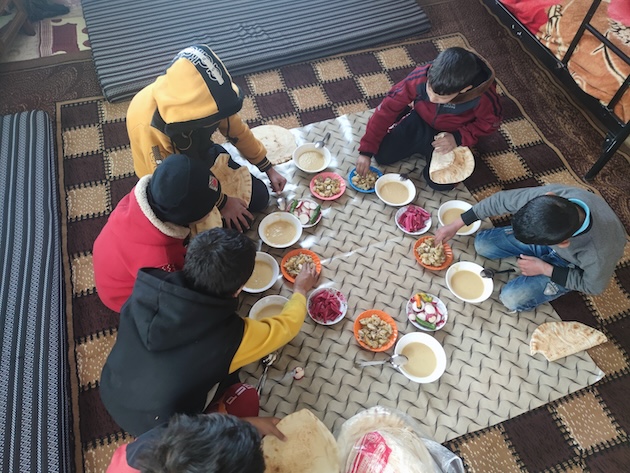The U.S. Treasury Department sanctioned 11 people and companies on Tuesday that it said were involved in illicit financial transfers and drug smuggling in support of the government of Syrian President Bashar al-Assad.
Many of those sanctioned were involved in the trade of the highly addictive amphetamine captagon, which is illegally trafficked throughout the Middle East and Europe, the Treasury Department said in a statement.
Syria has become the world’s leading producer of the powerful drug, and its trade has helped bolster the Assad’s government’s coffers during the country’s long-running civil war.
“The revenue from the illicit Captagon trade has become a major source of income for the Assad regime, the Syrian armed forces, and Syrian paramilitary forces,” the Treasury Department said in a statement.
Those sanctioned include a Syrian national called Taher al-Kayali, who allegedly operates a company that purchased vessels to smuggle captagon and hashish.
Maya Exchange Company, another Syria-based firm, is alleged to have facilitated “millions” of dollars of illicit transactions to benefit the Syrian government.
“The Assad regime continues to employ a variety of schemes to evade sanctions and sustain its longstanding campaign of repression against its own citizens,” Treasury undersecretary for Terrorism and Financial Intelligence Brian Nelson said in a statement.
This includes “trafficking in illegal drugs, exploiting currency exchanges, and leveraging seemingly legitimate businesses,” he continued.
UN Humanitarian Coordinator for Syria Mourns the Loss of WHO Team Member in Deir-ez-Zor Air Strikes
In a heartfelt statement released on 26 March 2024, Adam Abdelmoula, the United Nations Resident Coordinator and Humanitarian Coordinator for Syria, expressed deep sorrow over the tragic death of Eng. Emad Shehab, a dedicated water, sanitation, and hygiene (WASH) professional with the World Health Organization (WHO) in Deir-ez-Zor City, Syria.
Eng. Shehab’s life was cut short in the early hours of Tuesday, 26 March, when air strikes ravaged the Governorate of Deir-ez-Zor, hitting his building among others. The attacks not only claimed his life but also resulted in the death of several civilians, marking yet another dark day in Syria’s prolonged crisis, now in its 14th year.
With a commendable history of service within the WHO team since 2023, and prior engagements with multiple UN agencies and non-governmental organizations, Eng. Emad was instrumental in overseeing numerous construction and rehabilitation projects, particularly those related to water stations and sanitation facilities. Abdelmoula extended his sincere condolences to Eng. Shehab’s wife, two young children, extended family, friends, and colleagues, highlighting the significant loss to the humanitarian community and beyond.
Abandoned Children Growing Problem in Northern Syria
In a long report by IPSNews.com, the publication focused on the distressing trend of abandoned children in Idleb, Northwest Syria, spotlighting the profound impacts of war, poverty, and societal issues on the youngest and most vulnerable. Wael Al-Hassan’s discovery of a month-old baby girl by the roadside in Harim, on December 10, 2023, brings to light the grave reality of infants left to fend for themselves, often with fatal outcomes from exposure, hunger, or animal attacks.
The underlying causes of child abandonment in northern Syria are multifaceted. Social worker Abeer Al-Hamoud attributes this growing issue to poverty, high population density, insecurity, and the aftermath of divorces or spouses leaving their families. Compounding these factors are the consequences of early marriage and the abandonment of children by widows or partners of foreign fighters, who often leave these children undocumented and vulnerable.
Rape and the resultant fear of familial and societal retribution further contribute to the abandonment of newborns. This crisis calls for urgent action to protect these children from exploitation and discrimination, with suggested solutions including the reintegration of displaced persons, improvement of living conditions, family planning education, and societal campaigns for their integration.
The preference for community members to adopt these children faces bureaucratic and religious obstacles, as exemplified by Samaheer al-Khalaf’s struggle to officially adopt a child she and her husband decided to raise. The lack of official documentation restricts these children’s access to civil rights, including education and healthcare.
To address this issue, volunteers have established the Children’s House in Sarmada, providing care, education, and attempts at family reunification or foster family placement for children of unknown parentage. The center, surviving on scarce individual donations, caters to children up to 18 years old, offering a semblance of normalcy and support amidst their uncertain futures.


